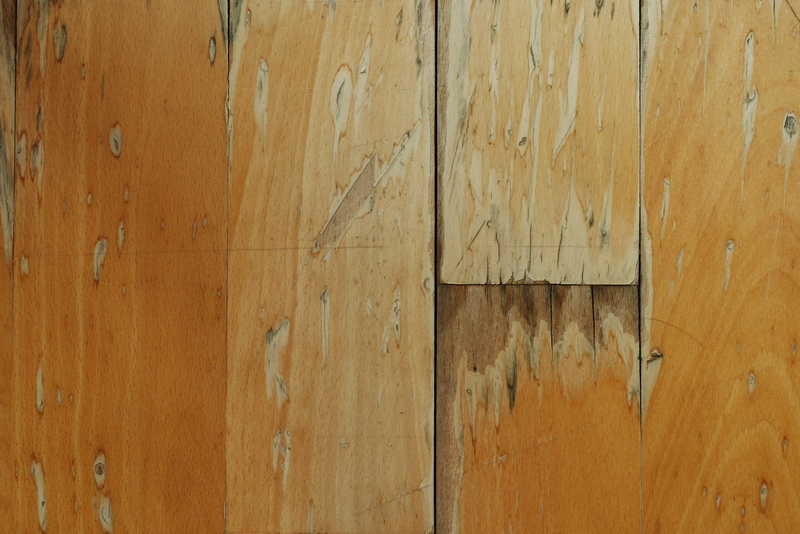Essential Jewellery Cleaning Techniques for You
Posted on 11/09/2025
Essential Jewellery Cleaning Techniques for You
Your jewellery isn't just about style--it's an expression of your unique personality and stories. Whether it's a family heirloom or a statement piece, keeping your jewels sparkling and pristine can feel like a daunting task. The good news? With the right jewellery cleaning methods, you can restore brilliance and longevity to your treasures. Read on to discover the essential jewellery cleaning techniques that will keep your gemstones, gold, silver, and costume jewellery in top-notch condition.

Why Clean Your Jewellery Regularly?
- Preserves Shine: Regular cleaning prevents build-up of dirt, oils, and lotions that dull your jewellery's appearance.
- Prevents Damage: Debris and residue can erode metal settings or loosen stones.
- Reduces Allergen Risks: Clean surfaces minimize reactions from skin contact allergens like nickel or copper.
- Retains Value: Proper care maintains both aesthetic and monetary value of your pieces.
Understanding Different Types of Jewellery & Their Cleaning Needs
Before diving into jewellery cleaning hacks, it's crucial to understand that every piece is different. The materials used--such as gold, silver, platinum, diamonds, pearls, or costume elements--determines the safest and most effective cleaning approach.
Gold Jewellery
- Non-reactive and resistant, but can scratch easily
- Prone to collecting oils from skin and lotions
Silver Jewellery
- Highly reflective, but tarnishes quickly when exposed to air, sweat, and perfumes
- Needs anti-tarnish cleaning
Gemstones
- Each gemstone has unique properties and vulnerabilities
- Diamonds are tough, but other stones like opal or pearls require gentle care
Costume Jewellery
- Made from mixed metals and glass/imitation stones
- Prone to tarnishing and discoloration
General Safety Precautions Before Cleaning Your Jewellery
- Inspect for Loose Stones: Never clean a piece with loose or damaged settings.
- Avoid Harsh Chemicals: Stay away from bleach, alcohol, acetone, or industrial cleaners.
- Read Manufacturer Instructions: Always check special care details for designer pieces.
- Use Soft Materials: Employ non-abrasive cloths, soft toothbrushes, and lint-free wipes.
Top Techniques for At-Home Jewellery Cleaning
Mild Soap and Water Method
This is the safest and most common way to clean most metal-based jewellery.
- Mix a drop of gentle dishwashing soap in a small bowl of lukewarm water.
- Soak your jewellery for 10-15 minutes.
- Use a soft toothbrush to gently brush away dirt--especially behind stones and in crevices.
- Rinse thoroughly with clean water.
- Pat dry with a lint-free cloth and lay out to air-dry completely.
Baking Soda Paste for Silver
To restore the luster of tarnished silver:
- Make a thick paste with baking soda and water.
- Apply gently with your fingers or a soft cloth.
- Rub in circular motions, avoiding delicate gemstones.
- Rinse thoroughly and dry with a soft cloth.
Note: Never use baking soda on pearls, opals, or soft stones.
Aluminum Foil and Baking Soda Soak
- Line a bowl with aluminum foil, shiny side up.
- Add your silver jewellery, sprinkle generously with baking soda, then pour hot water to cover.
- A chemical reaction removes tarnish in seconds.
- Rinse and dry thoroughly.
Professional Jewellery Cleaning Solutions
Many brands offer jewellery cleaning kits suitable for different metals and stones. Be sure to read label directions, and always test on a small section before soaking your entire piece.
Ultrasonic Jewellery Cleaners
- These devices use high-frequency sound waves to dislodge dirt and debris.
- Warning: Not suitable for all pieces, especially softer gemstones, glued items, or antique jewellery.
Special Care for Gemstones and Delicate Jewellery
Diamonds
- Clean with mild soap and water.
- A soft toothbrush helps restore their sparkle.
- Avoid any harsh abrasives around the settings.
Emeralds, Opals, Pearls, and Other Soft Stones
- Do not soak; use a well-wrung soft cloth with water and a drop of mild soap.
- Pat gently and air dry flat.
- Never use ultrasonic cleaners or abrasive pads.
- Store pearls in a soft pouch, away from other jewellery.
Costume and Plated Jewellery
- Wipe gently with a dry microfiber cloth after each use.
- If needed, dab with a cloth lightly dampened with water, avoiding prolonged wetting.
- Never soak plated or glued jewellery--moisture can cause stones to loosen and tarnish settings.
At-Home Cleaning Do's & Don'ts
- Do: Clean your jewellery regularly to prevent build-up that is harder to remove later.
- Do: Store different metals and types of jewellery separately to avoid scratching.
- Don't: Use toothpaste or baking soda on soft or porous stones; these are abrasive and can cause irreparable damage.
- Don't: Expose pearls and delicate gems to chemicals, perfume, or hairspray.
Quick Tips for Maintaining Jewellery Between Cleanings
- Remove jewellery before showering, swimming, or exercising.
- Store in clean, dry, soft-lined boxes or pouches.
- Wipe down after wearing, especially rings and earrings.
- Handle pieces by the edges or settings, not the stone.
When to Seek Professional Jewellery Cleaning Services
While home techniques cover routine care, certain situations require expert attention:
- Antique jewellery or pieces with fragile settings
- Severely tarnished or blackened silver and gold
- Jewellery with intricate designs where dirt is hard to reach
- Before special occasions or when preparing to resell items
Professional cleaning not only restores the shine but also allows experts to inspect your jewellery for any potential damage, which ensures safety and longevity.

Frequently Asked Questions
- How often should I clean my jewellery?
For daily-wear items like wedding rings, clean once a week. For other pieces, aim for once a month, or more often if exposed to dirt, sweat, or lotions. - Can I use vinegar or lemon juice for cleaning?
Avoid acidic solutions on most jewellery. They can damage metals (especially silver, gold, and costume finishes) and etch porous gemstones. - Is ultrasonic cleaning safe for all jewellery?
No. Absolutely do not use ultrasonic machines on pearls, opals, coral, or any stones with cracks, filled inclusions, or glued elements. - Why does silver jewellery tarnish, and how can I prevent it?
Silver reacts with sulfur and moisture in the air, causing tarnish. Store silver jewellery in anti-tarnish bags or cloth and clean regularly with a silver polishing cloth.
Conclusion: Keep Your Jewellery Beautiful For Years to Come
With these essential jewellery cleaning techniques, you can ensure every piece in your collection--whether fine, fashion, or sentimental--retains its beauty and value. Remember to tailor cleaning methods to each type of metal and gemstone, never skip routine maintenance, and don't hesitate to call on professionals for particularly valuable or fragile items.
Clean, polish, and store your jewellery with care--and your precious adornments will continue to tell your story for generations.




